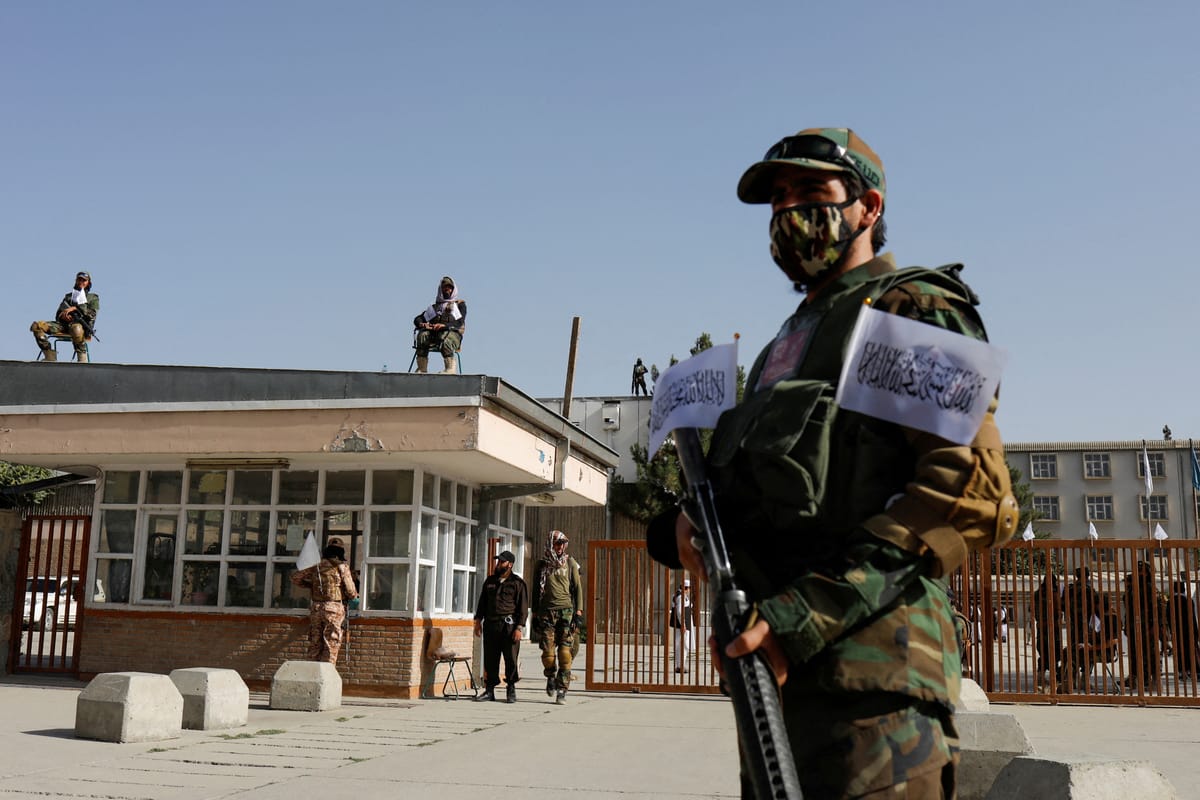A UN report says the Taliban is imprisoning women to protect them from violence
On Thursday, the UN released a new report from Afghanistan saying that the Taliban is sending women to prison to protect them from violence.

A few minutes every morning is all you need.
Stay up to date on the world's Headlines and Human Stories. It's fun, it's factual, it's fluff-free.
The backstory: It’s been over two years since the Taliban took over the government in Afghanistan in August 2021. The US pulled its troops out of the country, and not long after, the Taliban toppled the civilian government. When the group took over, it promised to protect women’s rights. But, we’ve seen a lot of changes over the last two years. Since the takeover, the 23 state-sponsored women's protection centers meant to help women victims of violence in the country have been shut down. The Taliban told the UN that these centers were unnecessary, Western concepts. This shift is part of a bigger one in Afghanistan limiting the spaces outside of the home that women are allowed to be in. They’ve been banned from school beyond sixth grade, working most jobs and public parks. Beauty salons have also been shut down. Women require a male guardian to travel more than 72 kilometers (45 miles), and they have to follow a strict dress code of being covered head-to-toe. The Taliban has also been accused of enabling more violence against women, allegedly imprisoning domestic violence survivors in some cases. It also got rid of the Ministry of Women’s Affairs.
The development: On Thursday, the UN released a new report from Afghanistan saying that the Taliban is sending women to prison to protect them from violence. Women experiencing violence who don’t have male relatives to live with or only have male relatives deemed “unsafe,” according to the report, are instead sent to prisons if officials are concerned for their safety. To ensure that the men who are housing female family members keep them safe, the Taliban reportedly asks them to pledge in front of local elders not to cause harm to the women.
Key comments:
“Some [Taliban] de facto officials stated that in instances where they had safety concerns for a survivor, she would be sent to the women’s prison, for her protection, akin to how prisons have been used to accommodate drug addicts and homeless people in Kabul,” the UN report said.
"The report reveals a stark absence of a clear and coherent framework for justice in Afghanistan, significantly hindering the process of reporting and addressing gender-based violence," Sahar Wahedi, a tech startup CEO and women's rights activist, told CBS News. "This ambiguity, particularly with the Taliban's vague reference to 'Sharia law,' places an immense burden on women, making the act of reporting a dangerous risk due to uncertain outcomes and potential blame."
“Once you go to the prison, it’s a big deal,” said one former activist about being arrested in Afghanistan. “You have no dignity afterward because everyone will say you were raped.”




Comments ()